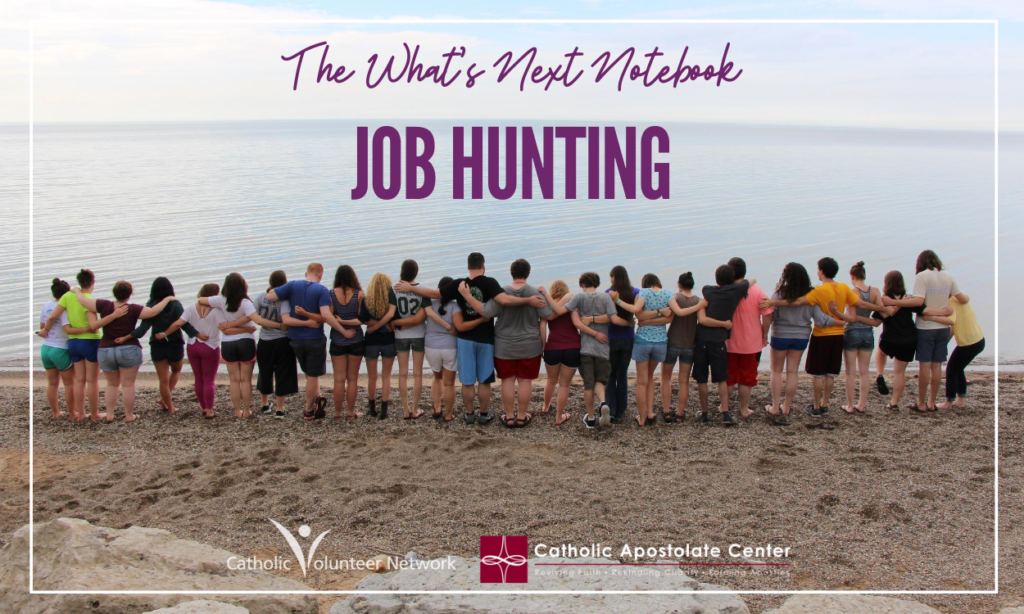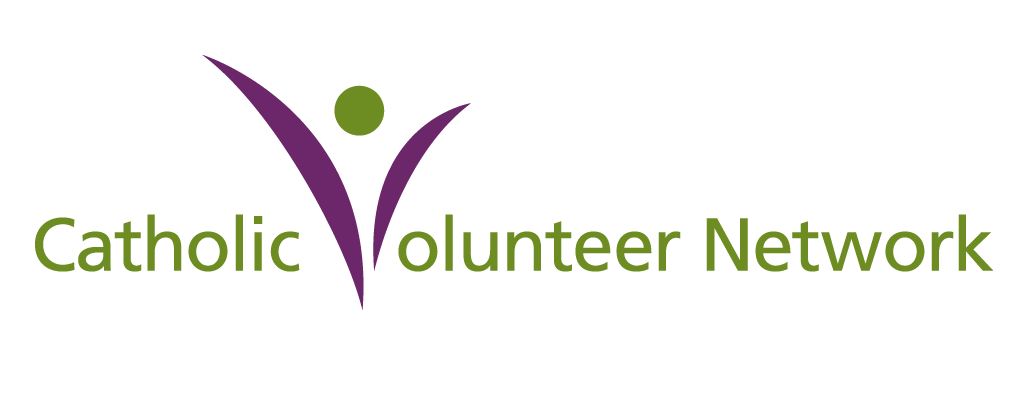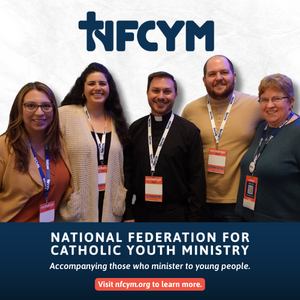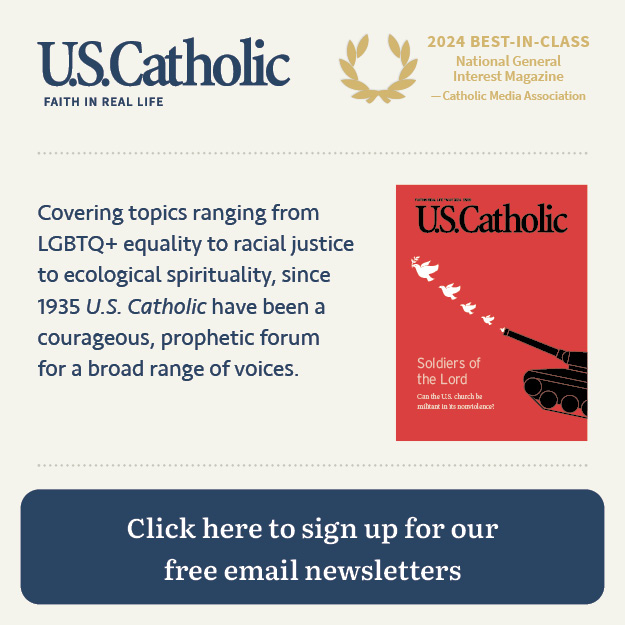This blog is part of our #WhatsNext series for former volunteers, inspired by the What’s Next Notebook resource from Catholic Volunteer Network and Catholic Apostolate Center. In each blog, we will explore helpful tips for looking back on your volunteer experience, saying goodbye, determining your next steps, and sustaining your spiritual growth during the transition to “life after volunteering.”
Introduction
Hopefully you’ve been able to spend some time discerning your career path with last week’s blog – Choosing a Career. Now, it’s time to turn vision into action – by starting the hunt for a great job!
Reminder: Don’t forget to register for Catholic Volunteer Network’s weekly alumni job bank featuring job opportunities all across the United States! You can subscribe by clicking HERE.
Where to Start?
Take some time to remember the factors that were important to you when choosing your volunteer program. Were you drawn to a particular location? Was it a specific type of service that interested you? Did the opportunity to live within a new culture draw you in? Were you inspired by the charism of the program? You probably did not choose your program based on one factor alone, but there may have been one guiding interest that helped you get started down the path towards finding the right program. Similarly, many of those same factors can help you narrow down your options in your job search. When you think about your future job, what are the elements that are most important to you? The answer to this question becomes the key words you use when searching the internet for jobs.
Tips for Resumes that Get Noticed
It has been said that employers spend less than thirty seconds screening each resume they receive. Therefore, it is essential to have a resume that is well-formatted and clearly showcases your qualifications. The following tips will help ensure your resume passes the test:
- Display name and contact information clearly at the top of the resume. Be sure to list your professional email address, not your school or work address, so that you don’t run the risk of having an account closed on you before you hear back from an employer. Also, keep it simple when it comes to email addresses. It is best if your address is some form of your name, rather than nicknames, attributes, or hobbies.
- Start with the most important information – it is okay to have a two-page resume if you cannot include all your important experiences and accomplishments on one page, but be sure to keep your greatest accomplishments towards the top of the first page. In most cases, three pages is too much information for a resume.
- Use reverse chronological order throughout – always start with your most recent positions and follow with older positions.
- Clearly designate sections for work, education, and other skills. This helps employers find the information they are looking for very quickly.
- When emailing your resume, send it in PDF format. This will ensure that your fonts and formatting will display properly on the employers computer.
- Get a second opinion – after spending so much time perfecting your resume, there still may be some errors or typos that you miss. Having someone that knows you well reviewing your resume helps ensure that you are presenting yourself accurately. You may also consider contacting your college Career Services office because they are often able to extend their assistance to alums as well as current students.
- Don’t leave out Americorps! If you served as an Americorps member, this is a great asset to include in your resume. Even employers who have not heard of your volunteer program will likely recognize Americorps and understand what your experience was like.
How Should I Showcase My Volunteer Experience on My Resume?
Your service can actually appear in a few different places on your resume. You should definitely include your service placement under employment, since you served in a long-term, full-time capacity. You can describe the other components of your program, such as community living, social justice, and prayer under “Volunteer Experience” or “Related Experience.” Your cover letter is another good opportunity to discuss your rich volunteer experience in more depth. We can guarantee that employers will be interested in hearing more about this unique experience!
What is a CV?
A Curriculum Vitae, or CV, is similar to a resume in many ways, but it puts more emphasis on academic achievements, including special projects, publications, honors and awards. These are often used when applying for positions in education or research. Generally, CVs are longer and more thorough than resumes.
Thank you for diving into our #WhatsNext series! Next week, we will explore the theme of Discernment – Applying to Graduate School, in which we will cover key resume tips for effectively communicating your professional and volunteer experience.
Read more blogs in this series by visiting our blog and clicking the #WhatsNext icon!
Be sure to register and receive all our resources for former volunteers, including the What’s Next Notebook and our Weekly Job Bank, by clicking here!





 Thousands of faith-based service opportunities can be at your fingertips with the RESPONSE. Download the latest edition today!
Thousands of faith-based service opportunities can be at your fingertips with the RESPONSE. Download the latest edition today!
